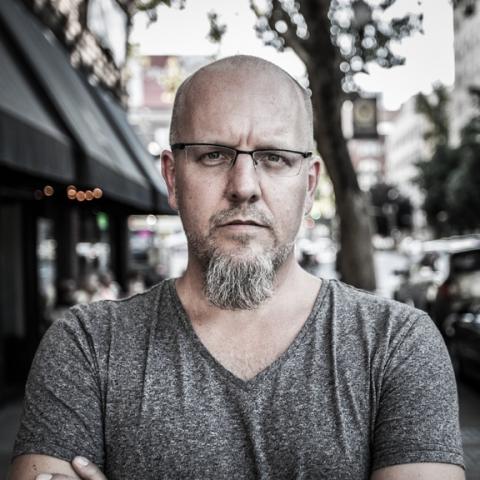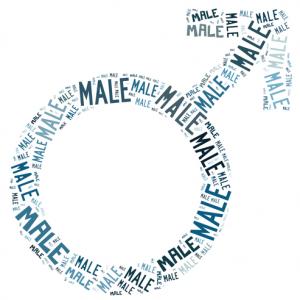
Christian Piatt is an author, blogger at Patheos and founder/cohost of the Homebrewed CultureCast podcast, where he focuses on the intersection of faith and popular culture. His latest book, “Leaving A-holiness Behind,” is available now, and his next book, “Surviving the Bible: A Devotional for the Church Year 2018,” will be available November 1, 2017.
Posts By This Author
More on the Beautiful Stupidity of Writing (Part 2)
Yesterday I wrote the first article in this series of posts on why it is that I write. Today I’ll jump ahead to the so-called more “successful” period of my writing work.
I got my first book deal back in 2006, and it came, like everything else, by way of rejection.
I had this great idea to publish a collection of my spoken word poetry in book form in a way that helped worship leaders and preachers incorporate them liturgically into worship services. Little did I know at the time that the word “poetry” is pretty much a four-letter word in publishing, particularly when you narrow your market down to mainline worship leaders to begin with. Top it off with the fact that people kind of have to have a natural sense of how to read the pieces aloud to make them work and … well, it was a stupid idea.
Fortunately for me, the proposal ended up in the hands of an editor who liked my writing style, even if my proposal was crap.
Why Women are the Key to the Church’s Future
I’ll preface this piece my saying I know I am making some broad generalizations based on gender, and that there are always exceptions to every trend. But despite that, I do think there are some cultural trends that can offer us some useful insight.
Anyone who has been paying attention has noticed that, of those left within the walls of most churches, the majority still hanging in there are women. Some, like the advocates of so-called Masculine Christianity, see this as a crisis. The Christian faith and its symbols are becoming softened, feminized, compromised into being something other than what they were meant to be.
Granted, when you take a faith whose principal authors historically have been men and then place that same faith in the hands of women, some things will inevitably change. Personally, I welcome the exploration of other, feminine expressions of the divine and values such as embodied spirituality that many female Christian leaders value. But aside from these assets, I think that women bring something far more critical to institutional religion.
Without them, it may cease to exist.
The Beautiful Stupidity of Writing (Part 1)
I’ve been asked how I knew I was called to be a writer. For me, calling is fairly easy to recognize. If the thought of doing something fills you with equal parts joy and terror, it’s probably a calling.
There’s more to it than that, I suppose, since the idea of buying a new Tesla sports car fills me with both feelings too, mostly because my wife, Amy, would kill me. There are other elements, like the conviction that our calling should feel something of an identifiable need in the world, and that it should call on gifts we have in a way that is life-giving not just to others, but joyful and life-affirming for us as well.
But the joy and terror thing is a pretty good sign you’re on the right track.
Longing for the Unreachable God
I’ve wrestled for years with a Christian faith that focuses on personal salvation, on many levels, some of which I’m still excavating. First, the emphasis on individual salvation always seemed ironically selfish for a faith that seemed otherwise to be about putting yourself second to others. I also struggled with the idea that Christianity is about getting a certain set of beliefs right, articulating them before a group of peers through a statement of faith and then you were official. Is it really so rote? So didactic? So … human?
All my life, I’ve heard stories of people who felt utterly transformed by their faith proclamation, or at the moment of baptism, in the throngs of prayer or during some particularly stirring worship service. They spoke of these feelings for which I longed. I wanted the mountaintop experience, after which I would never be the same. I wanted to be turned inside-out by God, illuminated by the Holy Spirit with a fire that never subsided. I wanted to feel what all these other Christians claimed to be feeling.
I’ve been to literally thousands of worship services in my life. I’ve been back and forth through the Bible, taken communion more than a thousand times, was baptized, sang the songs, said the prayers, and yes, I’ve had moments when I felt as if God was so close I could nearly reach out and touch whatever it was that I sensed.
Why Powerful Men Get In Trouble (And Why We Care)
First, we had CIA Director David Petraeus being held over the fire for a possible affair with his biographer, Paula Broadwell. Then General John Allen, the top-ranking U.S. Commander in Afghanistan, drawn into the drama as allegations of indiscretions of his own with Jill Kelly (the credibility and severity of which remains to be determined), who also is linked to Ms. Broadwell and the related Petraeus drama. Then there’s rumor of FBI agents sending shirtless pictures of themselves to women and … anyway, you get the idea.
As if all of that wasn’t weird enough, now there’s the matter of Kevin Clash, inventor of and voice for Sesame Street’s Elmo, being accused by a young man of having an illicit relationship while the accuser was underage. The man has since recanted his claim, but not before Clash admitted to a consensual encounter with the accuser when he was of legal age, if just barely.
Why do they do it?
What Does Communion Mean Without Atonement?
I’m known for holding an alternative view on salvation than many Christians – even Disciples — maintain, in that I do not adhere to the doctrine that Jesus died for our sins. I know there are lots of scriptures to back this position, and one can also use scripture to justify other explanations for Jesus’ death. As many of us have seen, the Bible can be, and has been, used to justify nearly any position we care to use it to support. As for me, I’ve done years of searching, praying, discussing, and reading, and my conclusion is that it is the love of God as manifest by Jesus that is redemptive, and not Jesus’ blood.
I know some folks will likely stop here, discrediting anything else I have to say because of this perspective, which is unfortunate, but which I also understand. But a family member recently asked me about my take on communion if, in fact, I don’t ascribe to the idea that Jesus was saying “this is my body broken and my blood poured out for the remission of your sins.”
It’s Not All Going to Be Okay, and That’s Okay
If we try to mold faith into something more certain than simply faith, it becomes something else. A crutch, perhaps, or a drug. So how or when does this happen?
It happens when someone is suffering and we tell them that everything happens for a reason. In the bigger picture, this is that opiate of certainty and assurance being cast over all the chaos, suffering, and doubt in an effort to keep it all tied up neatly in a religious package. But what it creates beneath the surface is a bastardized image of a God who sits in the Great Beyond, plotting out our fortunes and misfortunes, causing loss and heartbreak in our lives for some greater unknown plan. This makes us no more than so much collateral damage in some narcissistic divine game.
Is that really the God we believe in?
Post-Election: Jim Wallis Breaks It Down for Homebrewed Christianity Podcast
We were stoked to sit down with Jim Wallis, Sojourners guru, political activist and all-around change agent for the common good to chat up what happened during the most recent elections. We talk about what comes next, how the parties will respond to the electorate and where both sides can come together for real change.
And although Jim Wallis does sound a little bit like Darth Vader in this episode, it’s not his fault. We had an audio glitch in the recording in our haste to get this to you quickly.
Listen to the podcast and read a partial transcript inside the blog ...
Emergent Christian Cliches to Avoid
Following the creation of my first five articles in this ongoing series about Christian cliches (links below), I was alerted to the fact that my lists were notably absent of particular cliches often employed by emergent Christians. While the emergent Christians are endeavoring to re-imagine the way we engage faith, one another and the world differently, the movement still is dependent on human beings. As such, we tend to screw it up.
So in the spirit of fairness, I offer you a list of things emergent Christians can and should strike from our daily lexicon …
Steve Taylor on Leaving Music for Film, Returning to Music, the Election and Other Scary Things
Steve Taylor, film director and rock hero, visits our (mine and Jordan Green's) Homebrewed Christianity podcast to talk about the disappointing theater run of his film, Blue Like Jazz, what made him leave music for film, and to announce his return to music through a new album he’s been working on.
So, yeah, that’s a big deal. And yeah, we’re pretty much breaking the story.
In the Echo Chamber, we talk about the election, Superstorm Sandy, scary movie commercials, and, you know, a bunch of other stuff. Finally, we discuss some common Christian cliches.
Listen ... inside the blog.
A Scientific Case for the Human Soul?
Quantum Theory is still in its relative infancy within the entire discipline of science, although it finds its roots as far back as Plato and Descartes. But if some of the notions being pursued by contemporary scientists prove true, it may result in a convergence of science, art, philosophy, and even religion that the world never imagined possible.
I’ll admit from the start that investigating the literature for this particular article literally made my head hurt. To fully conceive of all that is discussed and examined in Quantum Theory takes a scientific sophistication that I lack. But fortunately there are some out there who are trying to make these complex ideas more digestible, without a string of letters after our names.
One such scientist is Stuart Hameroff, Professor Emeritus at the Department of Anesthesiology and Psychology and the Director of the Center for Consciousness Studies at the University of Arizona. To distill a very complex idea down into a few words, the general consensus in science is that consciousness can be attributed to computations conducted within the neurological networks in the brain. Basically, all consciousness can be explained by algorithms, which makes our brains essentially like big, highly sophisticated computers. There are some limitations thus far to this perspective, such as how such algorithms account for things like aesthetic experience, love, and even our sense of smell. Researchers in the area of Artificial Intelligence believe that discovering the algorithmic bases for such phenomena can lead to the construction (given the necessary technology) of an artificial human brain.
Calvin and God’s Gift of … Racism?
I’ve had a number of interesting discussions with various people lately about the notions of hell, salvation and who goes where. It’s a rhetorical exercise for the most part, since no one really knows. But there are plenty of real-life implications, particularly in the sphere of religion. For some, the understanding of what happens to us after we die is the prime mover in their day-to-day faith.
I know that the times when I resonate with more hard-line evangelical theology are few and far between, but in this case, I tend to resonate more closely with them than with my brothers and sisters of the Calvinist (also called Reformed Church) movement. For some not familiar with the differences, common Evangelical belief would suggest that God’s saving grace is available to all who seek it, and that the only thing standing between us and eternal salvation is us and our unwillingness to accept God’s perfect gift. In the Reformed Church, however (represented most prominently today by pastors like Mark Driscoll and John Piper), salvation is reserved for an elect few. The rest of creation will suffer the eternal wrath of God, period.
Five New Christian Clichés to Avoid
I was pretty amazed by the popularity of the first lists of Christian clichés I created (linked at the bottom of this article). I think it was because so many Christians saw themselves somewhere in the list and others (maybe even some Christians!) have been on the receiving end of these clichés and resonated with my frustration in hearing them pretty much my entire life.
Since that initial series ran, I’ve been thinking about other things Christians often say that tend to do more harm than good. So here are a few more to add to the list.
Bless his/her heart: This usually follows one of two less-than-Christian kinds of statements. Either it’s said after some kind of thinly veiled insult or after a juicy bit of gossip about the person whose heart you want to be “blessed.” Examples include, “Did you hear Nancy’s husband got caught sleeping with his secretary? Bless her heart,” or, “He’s not exactly the sharpest tool in the shed, bless his heart.”
If you’re from the South, you definitely know what I’m talking about.
Daddy’s Top Ten Childbirth Freak-Outs (Pt. 2)
#5. Delivery complications: Amy was a real trooper when Mattias was born, but nothing about it was easy. Actually he and I had eerily similar experiences making our way into the world. We both were exactly the same length and weight, we both were faced the wrong way, and both of us were finally delivered by caesarian section, after putting our moms through hours of hardcore labor.
The story I’ve heard is that my delivery was a big part of why my folks decided not to have any more children. Before that, they planned on having more but it was too much to deal with. And let me tell you that I can sympathize. I was in the room both when Amy tried to deliver naturally, and when they cut her wide open and yanked the little peanut out. His face was blue from a lack of oxygen, and his umbilical cord wrapped twice around his neck. Though I’ve never experienced such awe and joy in my life, I also have no desire to relive that sort of terrifying vulnerability.
#4. Postpartum: We didn’t recognize it as such for almost a year, but Amy suffered from pretty severe postpartum depression after Mattias was born. In a phrase, it sucked. I also happened to be running for local political office at the time, which added stress to the situation, but I didn’t know what the hell was going on. It was our first time, after all, and no one really warned us about what to do if your wife has quasi-psychotic images of herself pushing your baby down the stairs. She was so worried she was going crazy that she didn’t tell anyone for fear that they might take Mattias away from her. So instead, she tried to manage it, quite unsuccessfully, on her own for nearly 12 months.
The breaking point finally came one night when we were lying in bed and I laid it all out. I knew something was really wrong, but I had no idea what it was. I could feel her withdrawing farther away from me every day, and I felt like I couldn’t do anything about it.
Daddy’s Top Ten Childbirth Freak-Outs (Pt. 1 of 2)
 Don’t ever kill me, OK? Killing me is not safe.
Don’t ever kill me, OK? Killing me is not safe.
—Mattias, 3 years, 0 months
“What’s your greatest fear about having another baby?”
I don’t think Amy was just goading me when she asked me this back in the early stages of impending double fatherhood, but she knows we’re both pretty good worriers (though I’d argue she’s better at it than I am, and since I’m the one writing this book, we’ll assume she’d agree with me).
Talk about an open invitation to worry! I don’t spend a lot of energy worrying about day-to-day matters; I’m more of a saver. But when something comes along that’s really worth worrying about, you can bet I’ll draw down that worry account a bit.
After Amy asked me the fateful question, I started compiling a mental list. I figure I’ll lay out at least my top ten here for your edification, or at least for simple amusement:
#10. We could have twins...
Five Misconceptions About Men
Growing up, I looked to my dad as the quintessential definition of what a man was. He was pretty quiet but prone to anger. He worked crazy hours as the primary provider in the house, but still made time to build things nearly every weekend around the house. He had tons of tools, knew everything about everything and was never, ever wrong.
Some of what he was to me was passed along; most of it didn’t stick. And for that, I was pretty sure there was something wrong with me. Maybe I was gay. Could be that I just missed out on some critical “male gene” that made me want to work with tools and amass an encyclopedic knowledge about sports. I mean, I liked baking with my nana, and when I stayed over at their house for the weekend, sometimes I’d even paint my nails with her polish. I also went golfing and fishing with granddad, but I’d rather draw or play music than help my dad rebuild the retaining wall around the porch.
Must be something wrong with me.
Louis C.K. on Our Neighbor’s Bowl and What 'Fair' Is
Writing books is a strange process. When you’re in the middle of creating something this big, it tends to consume your every waking moment in some way. I can’t watch TV or have a conversation with a neighbor without my mind searching the content for narrative or thematic threads to weave into the chapter I’m working on. It can be a little bit maddening, at least for those around us, I expect. But I love it.
One unlikely wonderful source for material as of late for me has been the show “Louie,” by comedian Louis C.K. To say he’s irreverent would be underselling his shock value. He’s a little bit like Trey Parker and Matt Stone of South Park fame in that he levels the playing field of propriety simply by making nothing off limits. Some might not be able to get past his coarse and occasionally nihilistic approach to life, but I consider him to be nothing short of prophetic in his observations about the human condition.
Where Does Faith Fit in Today’s Politics?
It’s always annoyed me when people assume that, because I’m a Christian, I must also be socially conservative on all requisite issues. And while I understand those who lean further right because of their Christian beliefs, I take issue with those who suggest that being both a follower of Christ and a social progressive are mutually exclusive.
In fact, most of my positions on social issues can be traced back to my faith, which goes to show that the spectrum of beliefs taken from any given faith, as well as the many ways in which those beliefs are applied, is wide and arguably still growing as we continue to become increasingly pluralistic and intertwined.
Depending on your perspective, it could be argued that the landscape of presidential candidates either reflects such religious diversity, or that it’s still more of the same old majority rule at play, with a few minor cosmetic adjustments. For some, the fact that a Mormon is the Republican nominee is nothing short of astonishing, and what’s more, that the evangelical right is generally finding their way toward alignment with Mitt Romney’s presidential ticket.
It’s also worth noting that last week's vice presidential debate was the first time in history that we’ve had two Catholic VP nominees running against each other. The only fairly typical one in the group (unless you ask the Muslim conspiracy theorists, that is) is Barack Obama who is a member of the mainline protestant Christian denomination, the United Church of Christ.
On Religious Deserts and the Canaanite Woman
A friend of mine forwarded a link to a recent Huffington Post article about the most and least religious cities in the United States. Interestingly – but hardly surprising – you have to scroll waaaay down the list to find my current city of Portland, Ore.
“Looks like you have your work cut out for you,” he said. He’s right; I’ve met folks here who work in churches that tell people they work at a nonprofit when asked what they do, leaving the bit about the nonprofit being a church until they get to know each other better. And of course, we knew this when we came to the Pacific Northwest.
In fact, that’s part of what made me want to be here.
For some, there is great appeal in coming to an “unchurched” community, mainly because of the notion that this means there are that many more people in need of saving. And while this may or may not be true, there’s a lot of presumption that goes into saving those without religion, while assuming those who claim a faith are the ones to do the “saving.”
Is Our Debt to China the Key to Global Peace?
We’ve been hearing an awful lot about the national debt lately – particularly during the current election cycle – and specifically, we’ve gotten an earful about the problem of our enormous debt to China. Though some mistakenly believe we borrow all of our money to finance our upside-down economy from China, the truth is that they hold only about one-tenth of our total debt, which is about the same amount as we owe to Japan.
What’s staggering is that, even at 10 percent of our total indebtedness, that still amounts to well over one trillion dollars. That, in itself, is close to $3,700 for every man, woman, and child in the United States, plus interest. And if you consider that we owe ten times that much, it’s nothing short of depressing.


















